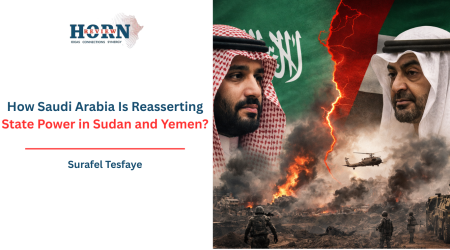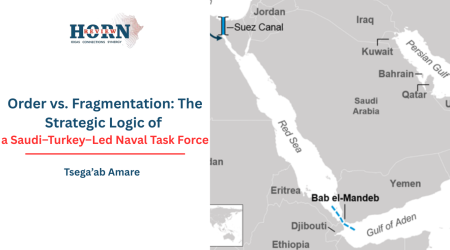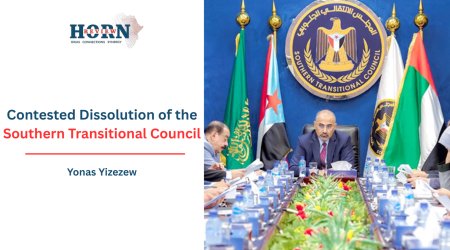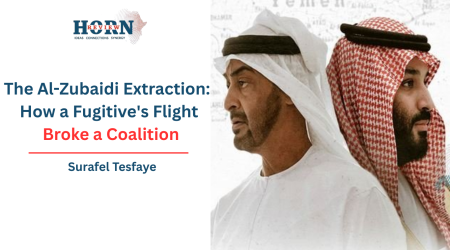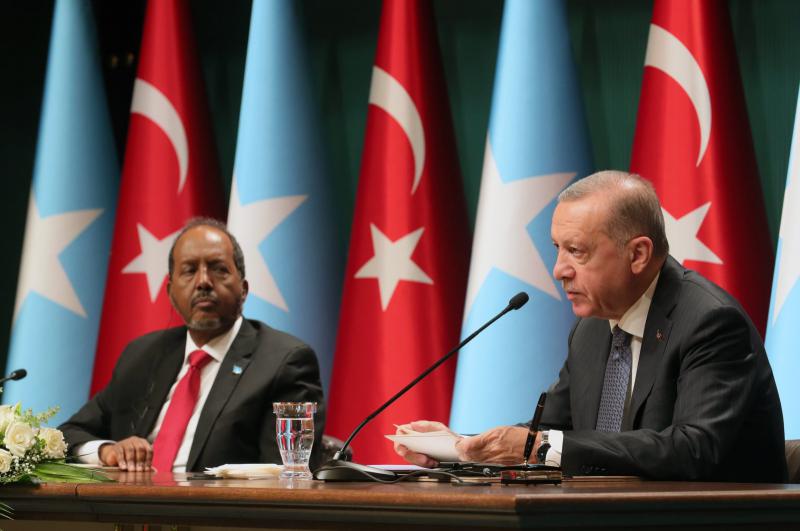
11
May
Somalia’s Oil Deals: Turkey’s Agreement Unlikely to Materialize
Somalia’s recent hydrocarbons agreement with Turkey, signed in March 2024, has raised criticisms about its ability to manage its vast offshore energy resources. The deal, which grants Turkey exploration rights over Somalia’s maritime blocks in exchange for a 5% royalty, faced strong opposition from lawmakers, civil society, and regional governments. Critics argue that the terms are exploitative, the negotiation process lacked transparency, and the agreement may be unconstitutional.
Somalia has a history of signing high-profile oil deals only to terminate them shortly under political pressure, legal challenges, or corruption scandals. Two cases in particular, the 2013 Soma Oil & Gas scandal and an oil deal with a US oil firm in 2022, demonstrate a clear pattern of dysfunction in Somalia’s hydrocarbon governance. When analyzed alongside the current Turkey agreement, these precedents suggest that the latest deal is unlikely to survive.
A Recurring Cycle of Failed Oil Deals
The dissolution of Somalia’s 2013 agreement with Soma Oil & Gas was a notable moment in the country’s troubled relationship with foreign energy firms. The deal, which granted the UK-based company exploration rights, quickly became mired in corruption allegations. A UN investigation revealed that Soma had funneled nearly $500,000 to Somali petroleum officials under the guise of a “capacity-building program.” Emails showed that ministry officials explicitly linked these payments to favorable contract terms, with one senior bureaucrat warning that without financial “assistance,” the deal could be subject to review. The scandal derailed Somalia’s first major post-war oil agreement and exposed the vulnerability of its institutions to regulatory capture.
This precedent was repeated in 2022 when Somalia’s former president, Mohammed Abdullahi Farmaajo, and prime minister, Mohammed Hussein, jointly invalidated the Coastline Exploration agreement within a day of its announcement. The agreement, signed during a contentious election period, violated multiple legal protocols, including a presidential moratorium on major contracts and a requirement for regional government approval. Additionally, the inclusion of offshore blocks claimed by Kenya turned the deal into a geopolitical crisis. Such expeditious cancellation reveals the fundamental instability of contractual obligations in Somalia, where political rivalries and jurisdictional uncertainties frequently supersede signed commercial arrangements.
Why the Turkey Agreement is Next in Line to Collapse
The parallels between these failed agreements and the current Turkey deal are clear. Like its predecessors, the Turkey agreement was negotiated under questionable circumstances, reportedly without parliamentary oversight or meaningful consultation with federal states. The 5% royalty rate is far below industry standards and politically untenable in a country where past deals offering 7-8% royalties were rejected as exploitative.
Moreover, the agreement has already triggered significant criticisms. Somalia’s parliamentary Natural Resources Committee has declared it unconstitutional, while regional leaders in Puntland and Jubaland have rejected Mogadishu’s authority to unilaterally sign away resources that fall under their jurisdictions. Public sentiment has turned against the deal, with activists and opposition figures framing it as another example of foreign powers taking advantage of Somalia’s weak governance.
The geopolitical dimensions further complicate matters. Turkey’s expanding military and economic presence in Somalia has already generated competition, and external powers such as the UAE and Egypt may seize on the controversy to undermine Ankara’s influence.
Meanwhile, the lack of transparency around dispute resolution mechanisms, which would be handled in Istanbul rather than Somalia, has raised concerns about the country’s ability to enforce its interests.
A Predictable Outcome
Given Somalia’s track record, the Turkey hydrocarbons agreement is almost certain to meet the same fate as previous deals. The combination of political opposition, legal challenges, and unfavorable terms creates an insurmountable barrier to implementation. If history is any guide, the agreement will either be substantially renegotiated with better terms for Somalia or abandoned altogether. For Somalia, the lesson is clear: without transparent negotiations, equitable profit-sharing, and genuine consensus among federal and regional stakeholders, its hydrocarbon wealth will remain a source of conflict rather than prosperity.

